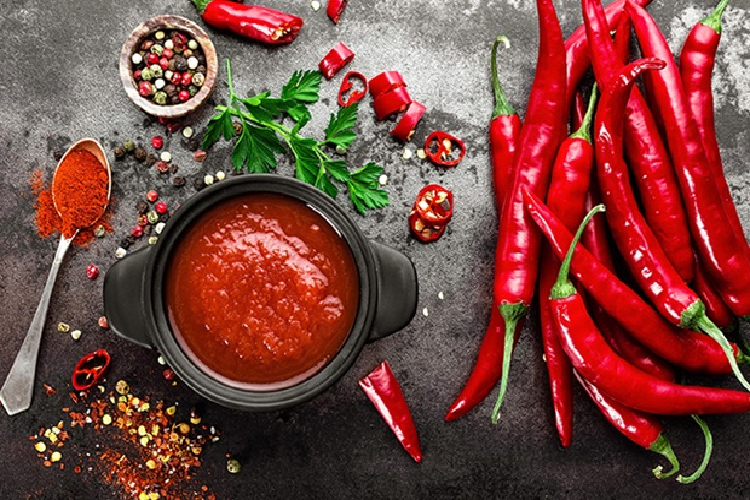
Spicy foods affect different people in different ways. photo courtesy of Penn Medicine
Spicy food can be a hot problem for some people.
I personally love spicy food. Ever since I was little, my sister and I would eat vibrant red chips, specifically Takis, and add enough hot sauce in our ramen to make the broth orange. Naturally, after so many years of consistently eating spicy food, I started to wonder: how does spicy food affect your body in comparison to non-spicy food? Therefore, I compiled everything consumers need to know about spicy food below.
While the claim that spicy food directly causes stomach ulcers and indigestion is disputed, it is proven that spicy food can make pre-existing conditions worse. Over-indulging in spicy food can cause problems further up your digestive tract, triggering indigestion and stomach pains to those who are more sensitive to capsaicin, the chemical in spicy food that triggers one’s pain receptors.
On top of indigestion, people with diagnosed irritable bowel syndrome (IBS) and Crohn’s disease should steer clear of spicy foods, as capsaicin can cause intestines to cramp up, making symptoms of these conditions much worse. Continuing from this, eating spicy food frequently for an extended period of time has been shown to increase the risk of developing IBS. The World Journal of Gastroenterology found that those who consume spicy food more than ten times per week are 92 percent more likely to have IBS than those who never eat spicy food. This risk is higher for women, as the same study showed that women who consume spicy food more than ten times per week are twice as likely to have or develop IBS.
However, spicy food is not all bad; it can actually have many benefits. To start, eating a spicy meal has been proven to temporarily boost one’s metabolism and decrease one’s overall caloric intake, as spicy foods naturally encourage one to eat slower and in smaller amounts. Besides weight loss benefits, capsaicin has been shown to decrease the fatality rates of strokes and heart attacks by 13%, since capsaicin lowers cholesterol levels. Spice in one’s diet can also decrease one’s overall mortality rate by 14%, and the percentage increases if alcohol is not regularly consumed.
However, these benefits are only possible with healthy spicy food. In fact, many junk foods with spices are linked to the negative side effects listed before, so if you have been known to have bad reactions to heat, consider trying spice in a healthier way, like adding fresh jalapenos to homemade salsas, or adding chili flakes to hummus. If you cannot handle the heat, keep in mind that capsaicin is an oily substance. Therefore, in order to cool your mouth down, avoid water, as that will only help the capsaicin spread further throughout your mouth. Instead, opt for milk or an acidic beverage such as orange juice. Acidic drinks help to neutralize the capsaicin, which is naturally alkaline. If all else fails, bell peppers are still good for you too!